At soggy Newbury last Saturday racegoers were still reliving memories of an epic Cheltenham Festival. ‘Were you there for that mano a mano Gold Cup between Native River and Might Bite?’ people were asking each other. ‘With the likes of Presenting Percy, Balko Des Flos, Footpad, Samcro and Laurina flourishing are we ever going to beat the Irish at Cheltenham again?’ No excuses, then, for taking my first opportunity for Festival reflections, especially since Roksana, the winner of the most important event on the Newbury card, the Grade Two EBF and TBA Mares ‘National Hunt’ Novices’ Hurdle Finale, was ridden by Bridget Andrews. Her stylish victory underlined the first lesson of this year’s Festival: surely now we have to stop talking about ‘women jockeys’ as some kind of separate class and simply treat them as individual riders who happen to be female.
On favourite Coo Star Sivola in the Ultima Handicap Chase, Lizzie Kelly became the first woman professional to ride a Festival winner, at the same time zapping the mind-gnawing demons that had followed her second-fence unseating in the 2017 Gold Cup. Bridget Andrews, Dan Skelton’s stable conditional, swiftly became the second female professional to score at the Festival, winning the hotly contested County Hurdle on 33–1 outsider Mohaayed. Her in-saddle embrace from Dan’s jockey brother Harry was in no way over the top, prompting the quote of the Festival from their showjumper father Nick Skelton, who declared: ‘With a bit of luck, Harry will marry her — if he has any sense.’
But the fair sex didn’t stop there. Irish amateur Katie Walsh rode Willie Mullins’s 25–1 Relegate to win the Champion Bumper (a Flat race for National Hunt horses) and score her fourth success at the Festival. Finally, Harriet Tucker, on only her second ride under Rules, won the Foxhunter Chase for amateur riders on Pacha du Polder. There are still those who mutter that women, whatever their talent, simply can’t be as tough as men. Oh yes? Harriet Tucker has a shoulder that periodically dislocates. When that happened over the second-last fence, she grittily popped it back in again and continued the finishing surge that won her the race.
As to whether the Irish are bound now to continue farming the majority of the Festival’s 28 races the honest answer is: ‘Yes, for a while they probably will.’ Back in 2012 the Irish won five Festival races. Since then their totals have been 14, 12, 13, 15, 19 — and this year it was 17. England-based trainers as talented and long-proven as Nigel Twiston-Davies, Philip Hobbs, David Pipe, Alan King, Donald McCain and Oliver Sherwood left this year’s Festival without a winner. But let us apply a little perspective: of the four top championship races at the Festival, only one went to Ireland. Native River, winner of a Classic Gold Cup, is trained in Dorset by Colin Tizzard. Buveur D’Air, winner of the Champion Hurdle, and Altior, triumphant in the Queen Mother Champion Chase, are both trained in Lambourn by Nicky Henderson. If they are sent good enough horses, plenty of English trainers are capable of producing Festival winners. So are plenty of Irish trainers: the impressive RSA Novices’ Chase winner, Presenting Percy, who could well be a force in next year’s Gold Cup, was one of three successive Festival winners trained in a tiny yard of just 15 horses by the publicity-shy Pat Kelly.
But look next at who trained most of those Irish Festival winners. Of Ireland’s 17 this year, eight came from Gordon Elliott’s yard, seven from Willie Mullins. Both are brilliant trainers who would do well wherever they operated and whatever was sent to them. But they have also been the major beneficiaries of changing times. A decade or two ago, most of the good horses bred in a less prosperous Ireland were sold abroad to owners who lodged them largely with English trainers and campaigned them largely in English races. Nowadays the cream stays at home in an Irish racing scene that is dominated by a group of extremely rich owners such as J.P. McManus, Ryanair’s Michael O’Leary (campaigning as Gigginstown Stud), banker Rich Ricci, and the Wylie and Potts families.
There is a further group of well-patronised Irish trainers like Jessica Harrington, Henry de Bromhead, Mouse Morris and Noel Meade, but the great bulk of Ireland’s equine riches are now handled either at Willie Mullins’s Closutton or Gordon Elliott’s Cullentra House. Both of them target the Festival ruthlessly. Ireland has scored 19 victories from 26 runnings of the Champion Bumper, of which Mullins has provided eight. This year he ran five and supplied the first three while Nicky Henderson, who worries that the race can wreck a youngster, rarely runs one.
Ireland has supplied 12 winners in 14 years of the Cross Country Chase, ten out of 11 in the Mares’ Hurdle. Money can’t guarantee you winners — Michael O’Leary reckons Gigginstown buys ten pricey horses for every one that comes good — but it can improve your chances, and for now Irish owners have plenty of it.
Got something to add? Join the discussion and comment below.
Get 10 issues for just $10
Subscribe to The Spectator Australia today for the next 10 magazine issues, plus full online access, for just $10.
You might disagree with half of it, but you’ll enjoy reading all of it. Try your first month for free, then just $2 a week for the remainder of your first year.


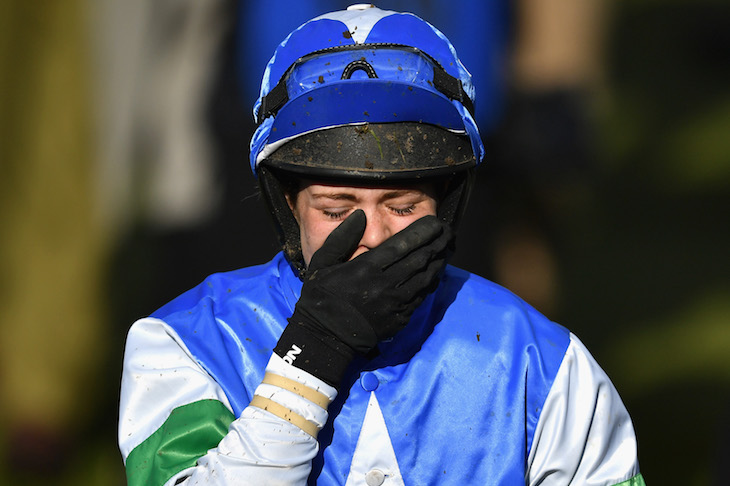
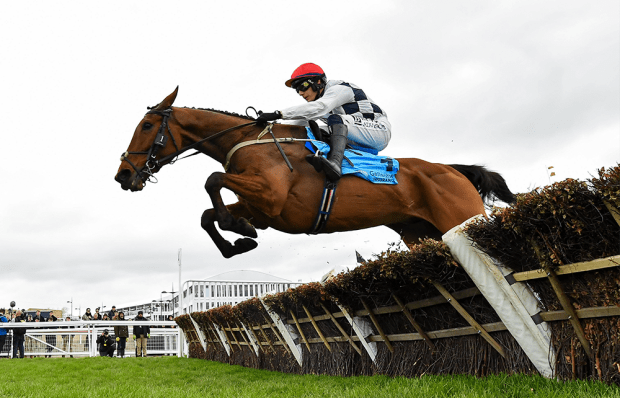
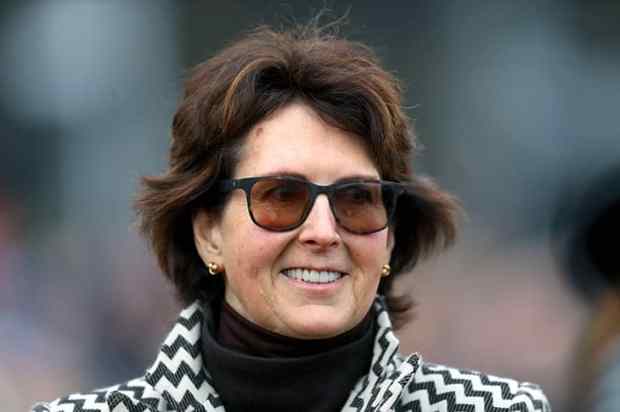
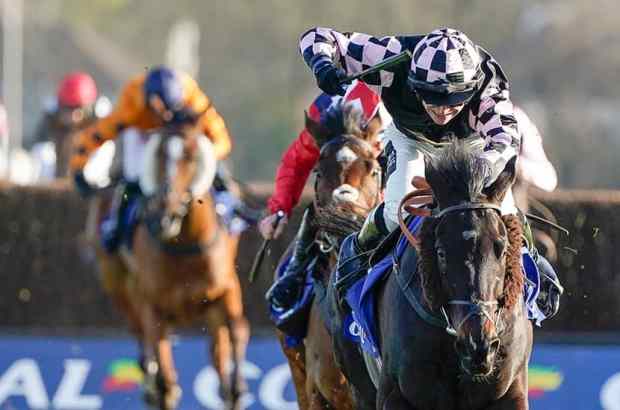
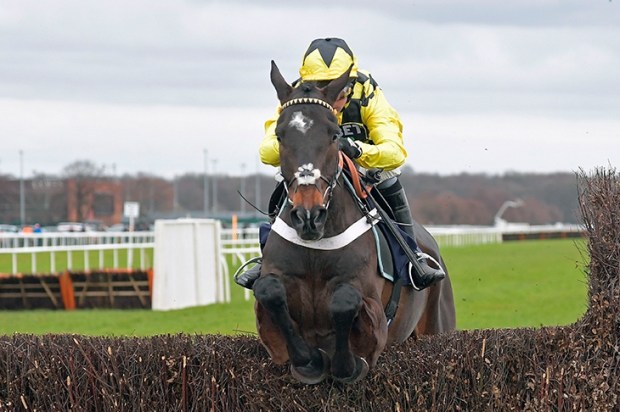
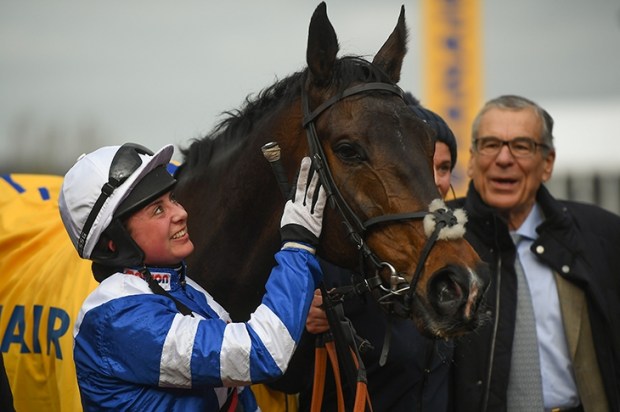
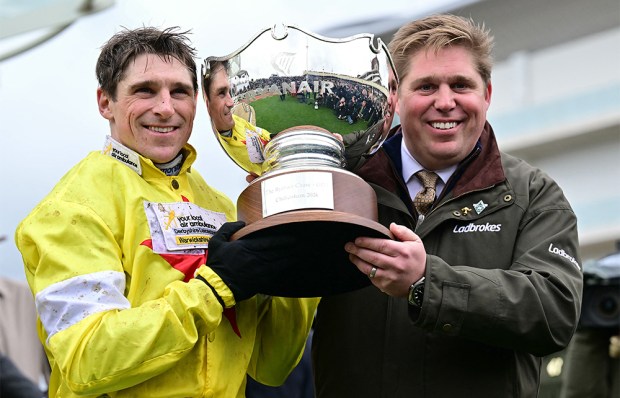






Comments
Don't miss out
Join the conversation with other Spectator Australia readers. Subscribe to leave a comment.
SUBSCRIBEAlready a subscriber? Log in